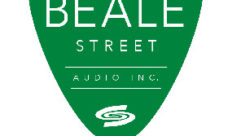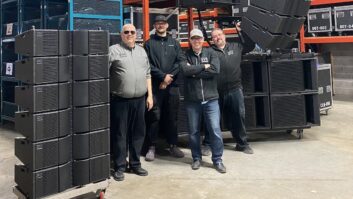The Office Noise Epidemic
Dec 4, 2014 11:03 AM, By Mark Hughes, Sr. Marketing Manager, Cambridge Sound Management
Solving Your Clients’ Noise Problem
Picture a typical office environment where you’ve done an installation. What does it look like? Chances are that it’s an open office with private offices along the walls and a bunch of cubicles in the middle, right?
If so, the office probably has a lot of dissatisfied, distracted employees. The trends toward low, or non-existent cubicle partitions, and putting more and more employees into smaller collaborative spaces are making your client’s employees uncomfortable. They are overhearing lots of conversations they shouldn’t be, and they’re hearing them fairly clearly.
In the sound masking industry, we call this phenomenon a “lack of speech privacy,” and it’s bad for business. A recent study showed that out of all of the factors workers encountered in their office environment—general maintenance, layout, furnishings, thermal comfort, air quality, and lighting—speech privacy was the factor they were the most dissatisfied with. Another study discovered that lack of speech privacy is the number one complaint among cubicle workers and open-plan employees, with 60 percent and 50 percent, respectively, describing it as a major issue.
Lack of speech privacy also costs businesses money. Researchers recently found that on average, employees wasted 21.5 minutes per day due to conversational distractions, making lack of speech privacy the number one cause of reduced productivity. That’s roughly 4 percent of an average employee’s workday (based on an 8-hour day). Some quick math shows that a company with 100 employees and an average employee salary cost of $100,000 is losing $400,000 a year in lost productivity. Not exactly chump change.
A lack of speech privacy also allows employees to overhear conversations they should not hear. For example, as walls to private offices become cheaper and thinner, closing the door to an office no longer guarantees speech privacy. Many private conversations could be HR nightmares if overheard by the wrong people, and in some cases, not providing sufficient speech privacy can even be illegal (think HIPAA violations, for example).
Selling sound masking along with the other services you provide is a great way to solve a problem for your client while simultaneously making more money for yourself. Most of your clients are aware that noise distractions are a problem; they just aren’t aware there’s a cost-effective solution to the problem. They aren’t familiar with sound masking, and even if they are, they’re unlikely to know that their sound and video contractor can install it for them. You can be the one who helps them better understand their problem and provide them with the solution.
Start by doing a quick site survey next time you’re at a client’s office. Are there a lot of cubicles? Are a lot of the employees wearing headphones? If so, these are usually good indicators that there’s a noise problem.
Next, get your clients talking about their noise problems. These questions generally get the conversation started:
• Do employees ever complain about being distracted by their coworkers?
• Does anyone raise concerns about their conversations being overheard?
• Can private offices hear conversations from other private offices?
• Is sensitive information being discussed?
• Do people keep their office doors closed because it’s too noisy?
• Is Human Resources located next to an area where they could be overheard?
• Is there a need to comply with HIPAtA or GLBA regulations?
If the answer to any one of the questions above is yes, it’s a great opportunity to bring up sound masking and how it’s a relatively inexpensive solution to the problem (and that you can install it for them). Your client can be a hero for solving this problem for his/her company. You, in turn, will be a hero to them.
Mark Hughes is senior marketing manager at Cambridge Sound Management, makers of the QtPro sound masking solution. He has marketed products in the audio technology space for more than a decade.










